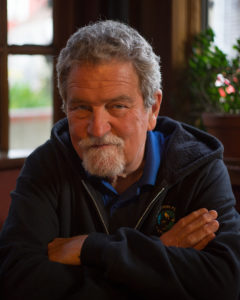 PROVINCETOWN — I live in an unusual Provincetown neighborhood. There are 11 nearby dwellings, and eight of them are occupied year-round. (That’s 73 percent.) Two of my year-round neighbors own their own businesses, three others work for local companies or nonprofits (and so do my wife and I), and two are self-employed. This all sounds remarkably normal, but it is not — not for Provincetown.
PROVINCETOWN — I live in an unusual Provincetown neighborhood. There are 11 nearby dwellings, and eight of them are occupied year-round. (That’s 73 percent.) Two of my year-round neighbors own their own businesses, three others work for local companies or nonprofits (and so do my wife and I), and two are self-employed. This all sounds remarkably normal, but it is not — not for Provincetown.
The reality in town is just about the inverse of my neighborhood: at least 60 percent of all residences are second homes. The vast majority of the workforce in town is seasonal, and a majority of these workers are either Jamaican or foreign students, many from Eastern Europe.
Now it’s the fall season and soon we’ll sputter out into the quietude of winter, but even in late August I can walk the beach in the East End and see empty houses. There are more than a couple of beautiful waterfront homes that are occupied less than 30 days of the year, by my estimation. Empty houses — at the same time you hear every day that someone else had to leave town because he or she had nowhere to live.
The twin challenges to existence here are employment and housing, or the lack of each. It is complicated: those empty trophy houses on the beach are neither the cause of nor the solution to the housing crisis. For the last hundred years the wealthy have existed among us during the balmy season and abandoned us when it was convenient (or, to be fair, necessary). These people leave their toothbrushes in the glass by the sink, their books bookmarked by the bedside, and don’t have to worry about the inconvenience of renters. They come back to their domains, watched over by property managers — a new growth industry in town (as is landscaping, now that people don’t maintain their own greenery, and housecleaning, now that people don’t do their own housework). Instead of draining their pipes for the winter, as in days of old, those who leave us for the winter just leave the heat on. They can afford to do so. There cannot be a law that you must inhabit your dwelling at least six months of the year.
To twist a metaphor: standing in the density of the forest we may not see the trees. Cloaked as we are in the immensity of a phenomenon we may not be aware of its existence. We read about income inequality and the disparity of wealth in this country. Tsk tsk, we say. But it is all around us.
The people who serve us in our restaurants (roughly 17 percent of the workforce) cannot afford to eat in those same places themselves. You don’t really want to know the conditions in which some of our workers live (and neither do the town authorities). People rushing from one job to another (and perhaps yet another) are largely invisible to those seeking leisure and amusement.
I can’t forget the image of a Jamaican woman, standing in all her dignity on Bradford Street, waiting for the bus after a long day of work, as a big-ass truck towing a speedboat zooms by.
Was it always so? To reverse-paraphrase Jesus, the rich have always been with us. In the mid-20th century there were fancy houses in the east and west ends of town that were seasonally occupied. The rich joined the rest of us at parties and gathered in the same eating spots and watering holes. If we gradually noticed that some people were never seen working, and were not around in the winter, eking it out like the rest of us, we figured that they were probably drug dealers or trust-funders.
The fundamental difference back then was that there was room for the middle class and those a rung or two below that. With a minimum amount of effort and a smidgeon of good luck, you could always find housing, and sometimes, employment. (Or unemployment — a whole industry in itself. I remember somebody saying, “If you are not on unemployment, you are just plain lazy.”)
There was, in short, a mix of people of all strata of society — at least in the summer. But as condo conversions metastasized, available apartments went away.
There are no good guys and bad guys in this story. The beauty of this town is also the long-term undoing of its community structure. Those who can afford to live here for a few weeks or months (or afford to do so by renting their places through Airbnb) do not join our volunteer fire department or our many town boards. This is a fake economy. The money that runs this place comes from the outside world. It is a minority that work a job here, pay a mortgage or rent, and keep the town going.
In 1942 Mary Heaton Vorse described Provincetown as a place “whose one crop is fish.” Those were simpler times. Now we exist at the mercy of the vagaries of tourism.
So, what to do with an imperfect world? Love it, even with the imperfections, and try to effect change where it is possible.



